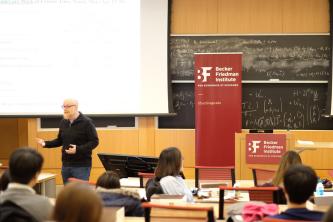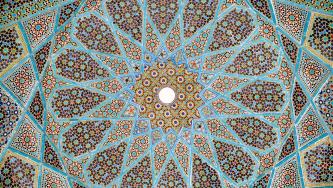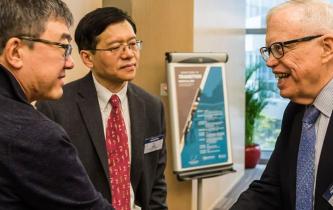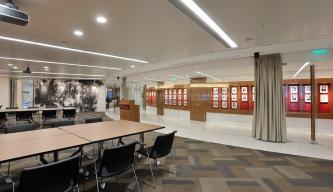UChicago Global Directory
Filter through the global profiles of UChicago scholars, centers and institutes and discover the many topics We Research and Regions where we work
Click "Apply" at the bottom of the filter when you're ready to search
The Becker Friedman Institute advances inquiry that illuminates our choices, our economy, our society, and our future.
The Center for East Asian Studies at the University of Chicago (CEAS) is an interdisciplinary nexus, clearinghouse, and resource for academic exploration and support related to the study of China, Japan, and Korea. For over 60 years, its mission has been to nurture scholarship of the highest level across the humanities and social sciences, and to facilitate deeper understanding of the region at the University of Chicago and beyond.
The University of Chicago has been providing instruction in disciplines of the CEERES region continuously since 1903, when courses in Russian language and area studies were begun. The center now known as CEERES has been in existence since 1965, and it continues to coordinate instruction and facilitate research about Russia/Eurasia and Eastern/Central Europe, including the Arctic, Balkans, Caucasus, and Central Asia.
The Center for Global Health (CGH) is an interdisciplinary program dedicated to improving health and well-being through education, research and training, and service in partnership with communities in the United States and around the world. Because so many academic disciplines are needed to address the challenges of global health, CGH leverages the unique institutional strength of the University of Chicago to bring together faculty and students from different schools and programs on campus.
The Center for Hellenic Studies is a common forum for researchers of many aspects of the Hellenic world— language, art, thought, history, and culture— across the University of Chicago and an interdisciplinary research center aiming to cross-fertilize research across paradigms, fields, and frameworks.
The Center for International Social Science Research is an eclectic intellectual community devoted to nourishing empirical, international research across the social sciences. We seek to spark and sustain critical discussions that traverse disciplinary, methodological, and geographic boundaries. CISSR supports work that informs and transforms debates on global issues within the academy and beyond.
The Center for Middle Eastern Studies (CMES) coordinates and supports the study of the Middle East, extending from Morocco to Kazakhstan, at the University of Chicago. Established in 1965, CMES has been supported by the Divisions of Humanities and Social Sciences at the University of Chicago and by grants from the U.S. Department of Education and the Mellon Foundation for more than forty years. Hundreds of graduates from the CMES M.A. program have gone on to impact engagement with the Middle East through careers in academia, government, and beyond.
The Center for the Economics of Human Development houses a number of projects that collaborate with institutional partners from around the world.
The University of Chicago Center in Beijing provides a physical presence to enhance and strengthen the University’s traditionally strong ties to Chinese thought and culture. Building upon more than a century of collaboration between scholars from Chicago and China, the Center in Beijing enables the University to expand existing activities and form new alliances and partnerships with universities, businesses, medical centers, policy groups, government agencies, and cultural organizations in China.
The University of Chicago opened a major new academic center in Delhi to support and expand opportunities for collaboration among scholars and students from India and Chicago across academic disciplines. The Center in Delhi is a home for research and education for University of Chicago faculty, graduate students, and undergraduates working in India and throughout South Asia, as well as Indian researchers and students representing a wide array of institutions, and scholars from around the world.
UChicago Global
5801 South Ellis Avenue
Chicago, IL 60637
global@uchicago.edu
© Copyright 2019–2024 University of Chicago




